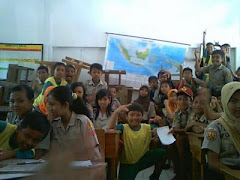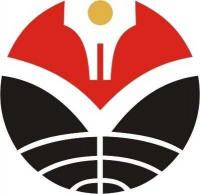
"Pendidikan gratis kalau yang di cari ilmu (banyak di Internet); Pendidikan mahal kalau yang di cari sertifikat, ijazah, akreditasi"
~Onno W. Purbo, Ph.D.~
+ open distance learning
+ opal initiatives
+ open educational resources
+ olnet evidence hub
+ open learning initiatives
+ open education
The theme of the 24th ICDE World Conference is “Expanding Horizons – New Approaches to Open and Distance Learning”. This conference provides a forum for sharing of ideas on redefining the roles and strategies of ODL in promoting cross-nation human capacity building. The conference discusses issues and challenges for ODL under the following sub-themes:
ODL in a changing world
Quality and ODL – the way forward
Management and strategic development of ODL
Open Educational Resources (OER) in a global world
International development and distance learning
The 24th ICDE World Conference features 6 keynote speeches, 216 paper presentations in 6 parallel sessions, and about 67 posters.
Speakers
Keynote Speakers
Mohammad Nuh, Minister of National Education of the Republic of Indonesia
Hal Plotkin, Senior Policy Advisor to U.S. Under Secretary of Education, United States
Duk Hoon Kwak, President and CEO of Educational Broadcast Service (EBS), Korea
Lawrence Lessig, Lawyer, Activist and Founder of Creative Commons, USA
Rory McGreal, Vice President Research, Athabasca University, Canada
Gráinne Conole, Professor of learning innovation/Director of BDRA, University of Leicester, United Kingdom
Discussion Panelists
Onno W. Purbo, IT Expert and Activist, Indonesia
Naveed M. Malik, Rector of Virtual University of Pakistan, Pakistan
Barney Pityana, Former Principal and Vice Chancellor of UNISA, South Africa
Manfred Antoni, Senior Publisher in the German Klett Verlag
Claudio Rama, Director of the Observatory of Virtual Education in Latin America (Virtual Educa), Uruguay
Liu Dailin, Director of the Supervisory Committee, Open University of China, China
Jens Uwe Korten, Pro Vice Chancellor of Lillehammer University College, Norway
Stavros Xanthopoylos, Dean of FGV Online – Distance Education Unit at Fundação Getulio Vargas, Brazil
24th ICDE World Conference Highlights
Earlier this month ICDE held its 24th biennial world conference on the exotic island of Bali, Indonesia. Hosted by ICDE member institution Universitas Terbuka, the 24th ICDE World Conference addressed new approaches to open and distance learning. ICDE extends warm thanks to the staff of Universitas Terbuka who did a commendable job, ensuring the success of the conference.
Over 600 delegates, representing 49 countries, were in attendance at the 24th ICDE World Conference on Open and Distance Education, held 2-5 October 2011 on Bali, Indonesia.
Opened by the Indonesian Minister of National Education Muhammad Nuh, the 24th ICDE World Conference featured a range of internationally respected keynote speakers whose presentations were streamed live during the event.
Among those who presented were Duk Hoon Kwak, President and CEO of Educational Broadcasting System (EBS), Korea; Rory McGreal, Associate Vice-President Research, Athabasca University, Canada; Gráinne Conole, Head of e-Learning at the University of Leicester, UK;Lawrence Lessig, lawyer, activist and founder of Creative Commons, US; and Hal Plotkin, Senior Policy Advisor in the Office of the Under Secretary of Education, United States Department of Education.
Proceedings
A tentative list of proceedings is now available on the conference website. Further photos, videos and a longer conference report will be made available during October.
24th ICDE World Conference Fellowship Programme
16 delegates representing a broad spread of regions, research interests, and gender balance received sponsorship to take part in the conference following the generosity of member institutions which contributed to the 24th ICDE World Conference Fellowship Programme. Sponsoring organisations can be found here.
Host of 25th ICDE World Conference in 2013
It was announced during the closing session of the conference that the host of the 25th ICDE World Conference on Open and Distance Learning in 2013 will be Tianjin Open University, China.
1. http://www.ut.ac.id/icde2011
2. http://vid4edu.info:82/paper/index.php/icde/2011/schedConf/presentations
3. http://burns.idium.net/icde.org/en/
Semangat Semoga Bermanfaat















